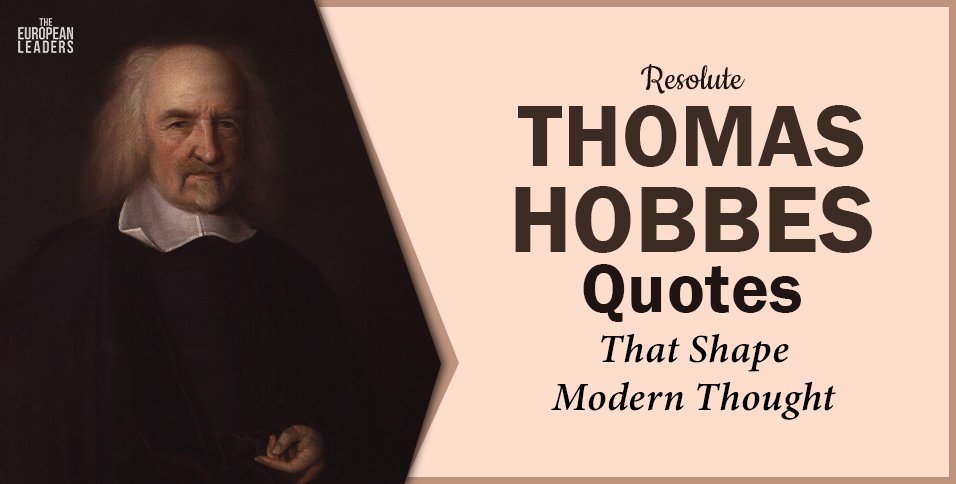Human life, in its essence, is fraught with conflict and ambition. The struggle for power defines our existence, revealing the darker aspects of our nature. Thomas Hobbes articulates this truth with remarkable clarity, presenting ideas that resonate through time. His quotes serve as reminders that, without a strong authority to maintain order, the natural state of humanity descends into chaos. In this exploration of 15 compelling Thomas Hobbes quotes, we confront the stark realities of power, fear, and the inevitable struggles that characterize our lives. Each quote invites us to examine the foundations of society and the necessity of governance in our relentless pursuit of security and peace.
Here are the 15 Thomas Hobbes Quotes to direct your way of thinking:
- “Covenants, without the sword, are but words and of no strength to secure a man at all.”
- “I am about to take my last voyage, a great leap in the dark.”
- “Curiosity is the lust of the mind.”

Hobbes was influenced by the intellectual revolutions of the Renaissance, particularly in science and mathematics. His fascination with understanding the natural world reflects his belief that curiosity is a fundamental human drive. Like physical desires, curiosity pushes the mind to seek out new knowledge, making it central to Hobbes’ materialist philosophy.
- “For it can never be that war shall preserve life, and peace destroy it.”
- “I often observe the absurdity of dreams, but never dream of the absurdity of my waking thoughts.”
- “Leisure is the Mother of Philosophy.”

Hobbes drew on the ideas of ancient Greek philosophers like Aristotle, who believed that contemplation and intellectual growth thrive during periods of leisure. Living in a time of political upheaval, Hobbes emphasized that free time allows individuals to reflect and engage with philosophical ideas. This theme appears in several Thomas Hobbes Quotes, highlighting the role of leisure in fostering deep thought.
- “It’s not the pace of life I mind. It’s the sudden stop at the end.”
- “Fear of things invisible is the natural seed of that which everyone in himself calleth religion.”
- “Understanding is nothing else than conception caused by speech.”

This quote comes from Hobbes’ materialist view of human cognition, influenced by his interest in mechanics and language. He believed that thoughts and understanding are structured by language, with speech being the essential mechanism that enables humans to form and communicate complex ideas. It’s a central concept in Thomas Hobbes Quotes about cognition.
- “Fact be virtuous, or vicious, as Fortune pleaseth”
- “The Power of a Man is his present means, to obtain some future apparent Good.”
- “Sudden glory is the passion which maketh those grimaces called laughter.”

Hobbes approached human emotions, including laughter, from a mechanistic perspective. He argued that laughter stems from feelings of sudden self-glory or superiority. This idea ties into Hobbes’ broader belief that humans are driven by self-interest, and even emotions like laughter reveal deeper competitive instincts.
- “If I had read as many books as other people, I would know as little.”
- “Passions unguided are for the most part mere madness.”
- “The condition of man … is a condition of war of everyone against everyone.”

This famous quote from Leviathan was shaped by Hobbes’ experiences during the English Civil War, which heavily influenced his pessimistic view of human nature. He imagined a “state of nature” without government, where humans would be in constant conflict. This state of perpetual war could only be avoided through a social contract under a powerful sovereign.
Conclusion
In conclusion, the wisdom contained within Thomas Hobbes quotes serves as a mirror, reflecting the inherent struggles of humanity. By grappling with these insights, we gain a clearer understanding of our motivations and the societal structures we inhabit. Moreover, recognizing the delicate balance between authority and individual freedom empowers us to navigate the complexities of life. Thus, let us carry forth these lessons, ensuring they guide our actions in a world fraught with conflict and uncertainty.








